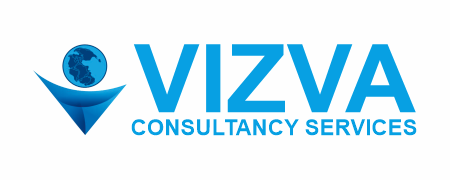
Closing a business is stressful. There are steps you can follow to make the process as smooth as possible. Respecting employment laws is essential, as well as consulting with stakeholders. Additionally, pay your employees on their last day of employment to avoid lawsuits. These are some of the tips you should follow in order to close your business. These tips can help you make the transition smoother and avoid confusion. It's not that difficult to exit your business.
Respect labor and employment laws
Compliance with labor and employment laws is essential for small business owners. While many employers find it tedious to comply with these laws, avoiding a lawsuit can save you time and money. You should check out the Equal Employment Opportunity Commission's guide on defining an employee, which can help you determine the proper status for your employees. Also, you should be aware of age restrictions and federal laws regarding discrimination. The Age Discrimination in Employment Act may apply to businesses that employ more than 20 employees. For further information, visit your state's Department of Labor website.

Stakeholders should be consulted
Stakeholders are those who own, control, or have an interest in a company. Stakeholders may be investors, customers or suppliers. Their input can shape the future direction of a business. In order to create a plan that is beneficial for everyone, it is crucial to consult with stakeholders. Here are some tips for engaging stakeholders. You might be surprised to find that some stakeholders are even more valuable than what you imagine.
Last day to pay employees
A temporary business closure can be due to extreme weather, natural disasters, or emergencies. While exempt employees work for only the hours they worked, non-exempt staff are paid for all hours. They may also be eligible to take paid time off to make up any wages lost. In these cases, the last day of business is considered the normal working day. A business that cannot close for a week must pay its employees a salary the last day.
Avoid lawsuits
Some serious business litigation cases can force a business owner to close down. These cases are a reminder of the importance to avoid lawsuits. Even the most cautious business owners can end up in court, unable to recuperate from the financial or reputational damage that a lawsuit has caused. Here are six ways to avoid lawsuits.

Avoid late fees
Paying off any outstanding accounts before your business closes down is a great way to avoid paying late fees. Notify all creditors about the impending shutdown and arrange to pay your creditors in full. Once you have made this payment, make sure to send a final letter indicating that you have paid off your business debts. It is also important to inform your customers of the impending closure.
FAQ
What qualifications are required to become a consultant?
It's not enough just to have an MBA degree; you must also demonstrate experience working as a business consultant. A minimum of two years' experience in consulting, training and/or advising a major company is necessary.
Your experience in strategy development projects requires that you work closely with senior managers. This means you'd have to be comfortable presenting ideas to clients and getting buy-in.
Additionally, you will need to pass a professional qualification such as the Chartered Management Institute Certified Management Consultant (CMC).
How do I start a LLC consulting business?
It is important to first decide what you want as a service provider. Then, make sure that you are qualified for these services. It may be a good idea to seek out someone who offers the services you need and observe their work.
Once you know your product/service, you should start looking for the right market. If there aren't enough of them, you may need to create them.
You then have to decide whether or not you want to open your own company, or hire other people to do it.
A license from the state could be required to start your own consulting business. However, this can take some time and require legal fees.
What skills will I need to be a consultant?
As a consultant, you should have both strong interpersonal skills and analytical skills. This is essential because you will be working on projects that you don't know the details of. You must learn how to manage people and solve problems quickly.
A strong communication skill is also necessary. Most clients expect a reply within 24 hours. If they don’t hear from you within 24 hours, they assume you don’t care. It is crucial that you keep them up to date and make sure they know what's happening.
Statistics
- Over 50% of consultants get their first consulting client through a referral from their network. (consultingsuccess.com)
- So, if you help your clients increase their sales by 33%, then use a word like “revolution” instead of “increase.” (consultingsuccess.com)
- My 10 years of experience and 6-step program have helped over 20 clients boost their sales by an average of 33% in 6 months. (consultingsuccess.com)
- On average, your program increases the sales team's performance by 33%. (consultingsuccess.com)
- WHY choose me: Why your ideal client should choose you (ex: 10 years of experience and 6-week program has helped over 20 clients boost their sales by an average of 33% in 6 months). (consultingsuccess.com)
External Links
How To
What's a typical day like for a Consultant?
The type of work that you are doing will affect the typical day. But, in general, you will spend your time researching, planning and meeting new clients.
You'll often have meetings with clients where you can discuss issues and solve problems. These meetings may be over the phone via email, on-line, or face-to–face.
You may also be asked to prepare proposals, which are documents outlining your ideas and plans for clients. You'll need to discuss your proposals with a mentor, colleague, or friend before you present them.
You will need to create content after all your planning and preparation. This could include writing articles, designing websites or editing photos.
Depending on the scope of the project, you may need to do some research in order to gather relevant statistics or figures. For instance, you might want to find out how many people you have and if they are buying more than just one product or service.
Once you have all the information needed, it is time for clients to see your findings. You may give your findings orally or in written form.
You must also follow up with clients following the initial consultation. You can call clients to ask how they are doing or send emails asking for confirmation that your proposal was received.
Although it takes time, this process is worth it. It's also important to keep your eyes on the prize and maintain good relations with clients.